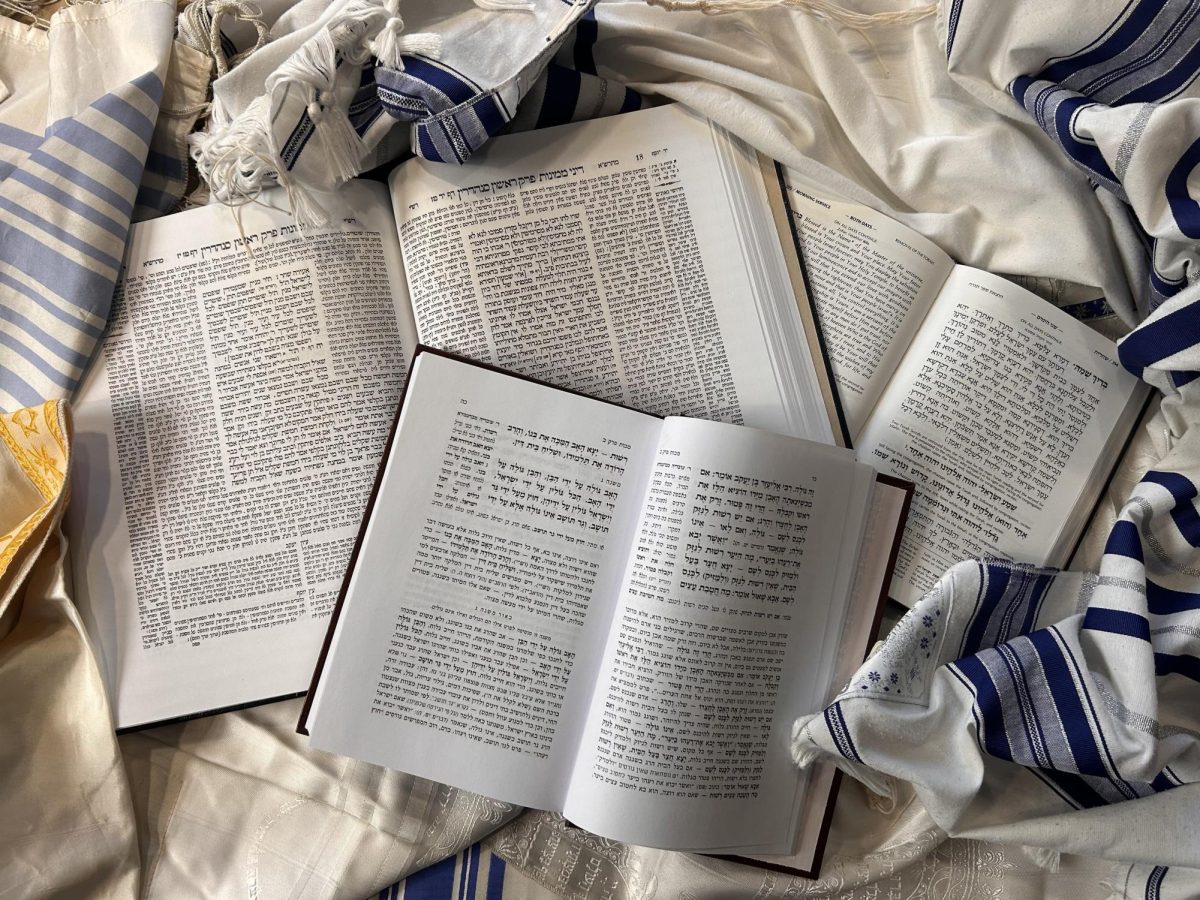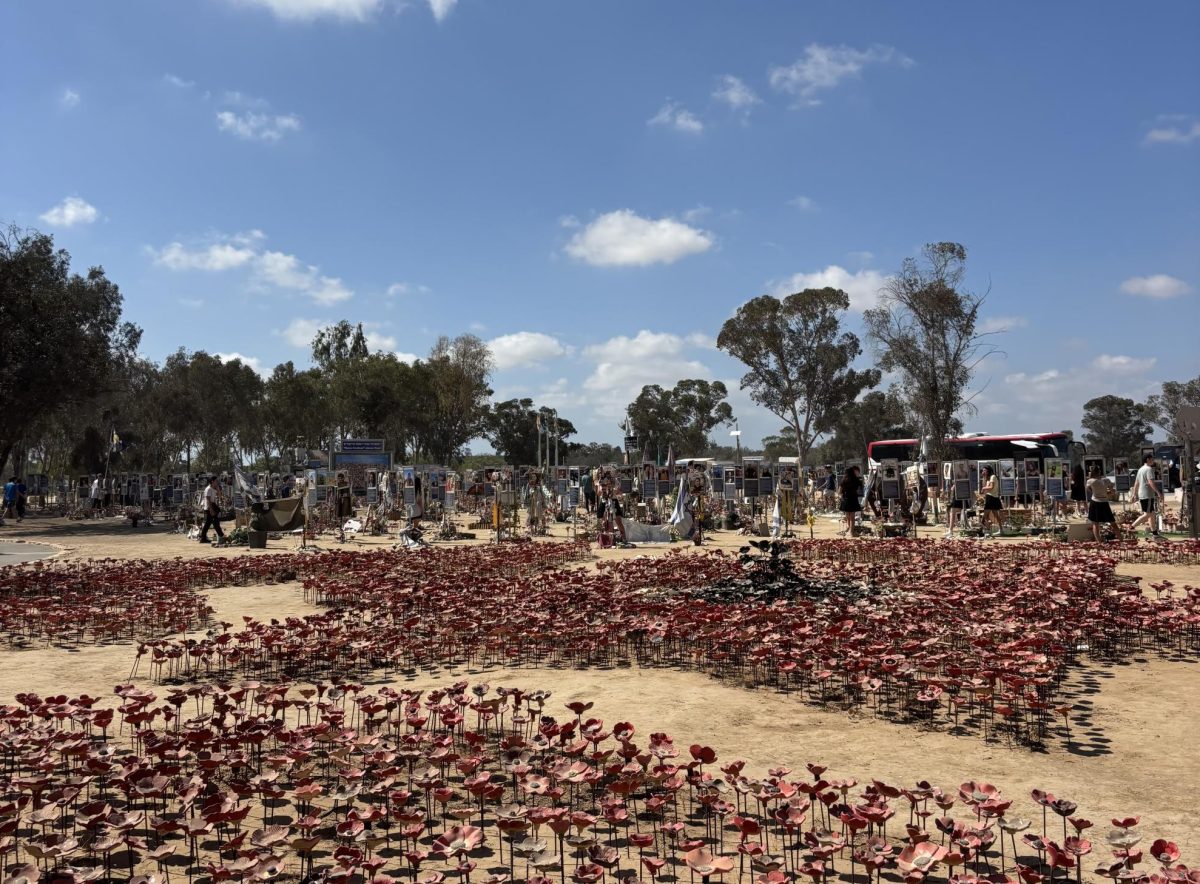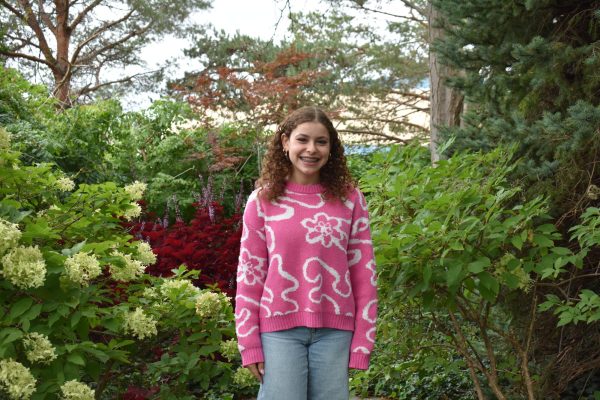Attending a Jewish summer camp creates many long-lasting positive benefits. One of the assets kids gain from camp is learning how to build a stronger connection to Judaism. The Jewish values taught at summer camp can encourage kids to learn more about their religion and how it can play a meaningful role in their lives.
Campers learn about Judaism through various activities, primarily daily Jewish programs. At Herzl Camp in Webster Wis., campers participate in staff-led programs focusing on Israel, antisemitism, prayer, guided discussions about Judaism, and fun activities encouraging peer bonding.
Counselors are responsible for planning engaging programs campers will enjoy. Herzl Camp counselor, David Smith, a student at The University of Iowa says, “To me, making those activities as meaningful and as fun as possible was of utmost importance.”
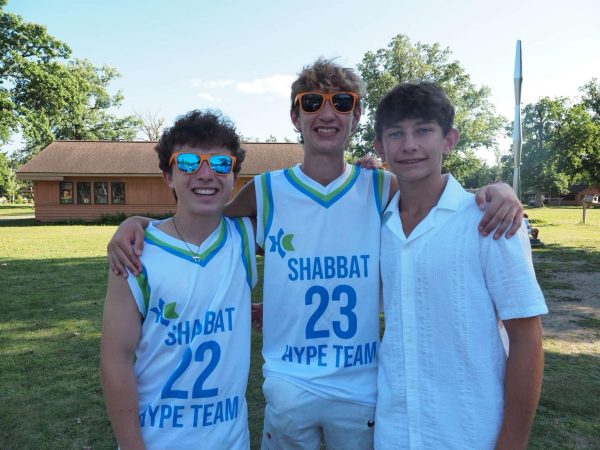
This past 2024 summer, many programs were dedicated to highlighting the importance of Israel. Sophomore Peyton Budda (St. Louis Park, Minn.) says, “We learned about the geography and maps of Israel. We also learned about all the technology Israel has created and how it’s important to debunk myths about being Jewish to educate other people.”
Participating in meaningful programs is essential to one’s Jewish education. Sophomore Evie Gardner (Lake Elmo, Minn.) says, “It just strengthened my love for Israel.” These programs are meant to reinforce your support for Israel and your understanding of why the country is important to the Jewish people.
Most camps have a large population of Israeli staff, which can offer a benefit for the campers. Engaging in programs led by Israeli counselors also aids campers in expanding their secondhand knowledge of Israel.
Another way camp connects you to Judaism is through engaging and purposeful Shabbat services. Herzl camper, Harry Hasko (Wayzata, Minn.) says, “At camp, my Jewish identity only becomes louder, and one of the main reasons for this is the Friday nights.” Friday nights at Herzl consist of dressing up in white clothing and caravanning around the campground while singing songs, followed by a Kabbalat Shabbat service.

Prayer services are engaging and lively because kids are encouraged to get up and dance with their friends. A positive prayer experience helps kids gain confidence to lead services at their respective synagogues.
Each Jewish summer camp has unique ways of connecting campers to Judaism influenced by the level of observance that the camp follows. Some summer camps, including Camp Ramah in Conover, Wis., have daily services. The younger campers at Ramah participate in Shacharit every morning, while the older campers have the choice between praying Mincha or Ma’ariv.
Elia Ellis, a junior at HBHA says, “I think prayers at camp are fun and it is a nice way to start your day.” Having daily services helps kids get into the habit of praying while still enjoying the fun songs and prayers.
Camp fosters a safe environment for campers to think and speak openly about Judaism so they feel comfortable and safe asking questions. This initiates a better understanding of what being Jewish means, allowing them to form their personal beliefs. Budda says, “They are teaching you…how to be a better person and to think for yourself.”
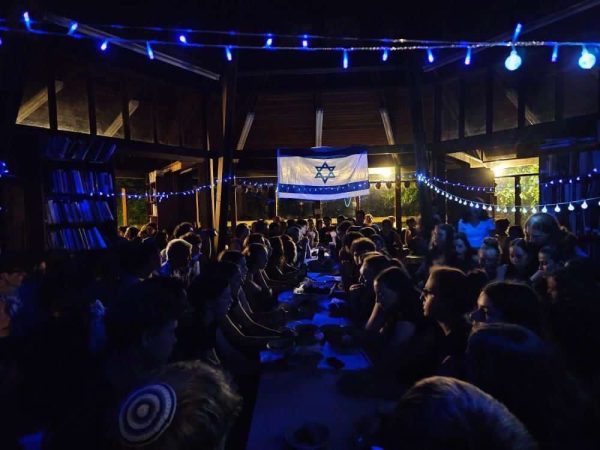
All Jewish camps strive to give campers a sense of empathy and confidence when it comes to learning. Orli Lubin, who attends Camp Moshava in Wild Rose, Wis. says, “In camp, we have amazing role models helping to guide us in our Jewish lives and helping us be the best version of ourselves.”
Going to camp allows kids to be passionate about Judaism and the Torah. Gardner says, “Camp really helped me focus on smaller things I can do to grow my passion for Judaism and grow a relationship with Hashem (G-d).”
Integrating further into the Jewish community through camp is what makes it so special. It can feel much easier to express your Judaism when you are surrounded by Jewish peers. Being friends with other Jewish kids creates a mutual, cultural understanding that everyone has similar beliefs and are able to empathize with each other’s struggles. Gardner says, “Camp is where I found the best friends of my life, and I think that all of us being Jewish really adds to that.”
Being at camp can relieve the pressure of being Jewish. While for some, being Jewish may feel forced, kids are encouraged to express their religion freely and support others doing the same.
Attending camp encourages goers to express their Judaism year-round. “Whether I’m in Wisconsin or I’m in Kansas, I’m still showing my Jewish pride,” Ellis said.
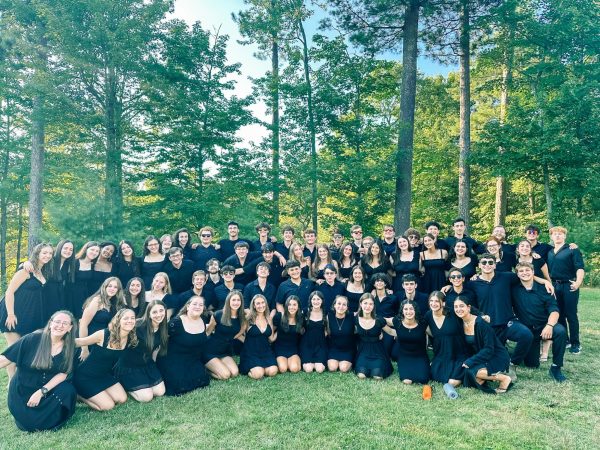
The Jewish values learned at camp offer many perspectives. Not only do kids learn what the camp has to offer, but they also learn from peers. Ellis says, “All of these Jewish values from all over the country are being brought together.”
Going to camp helps showcase the different values of being Jewish in all aspects of life. Smith says, “Judaism goes beyond just praying in services…We can be Jewish when we are playing sports because we have really good sportsmanship.”
The lessons learned at Jewish summer camp impact campers well into adulthood. Smith says while trying to combat antisemitism on his college campus, he is able to implement what he learned at camp. Smith says, “It taught me to be super proud to be Jewish. It taught me to lead with kindness when I don’t agree with somebody instead of just screaming at them.”
Kids who attend a Jewish summer camp tend to feel more connected to Judaism. The numerous lessons taught through programming, Jewish rituals, and the Jewish community, teach kids to find pride in themselves and a deeper connection to their religion.








